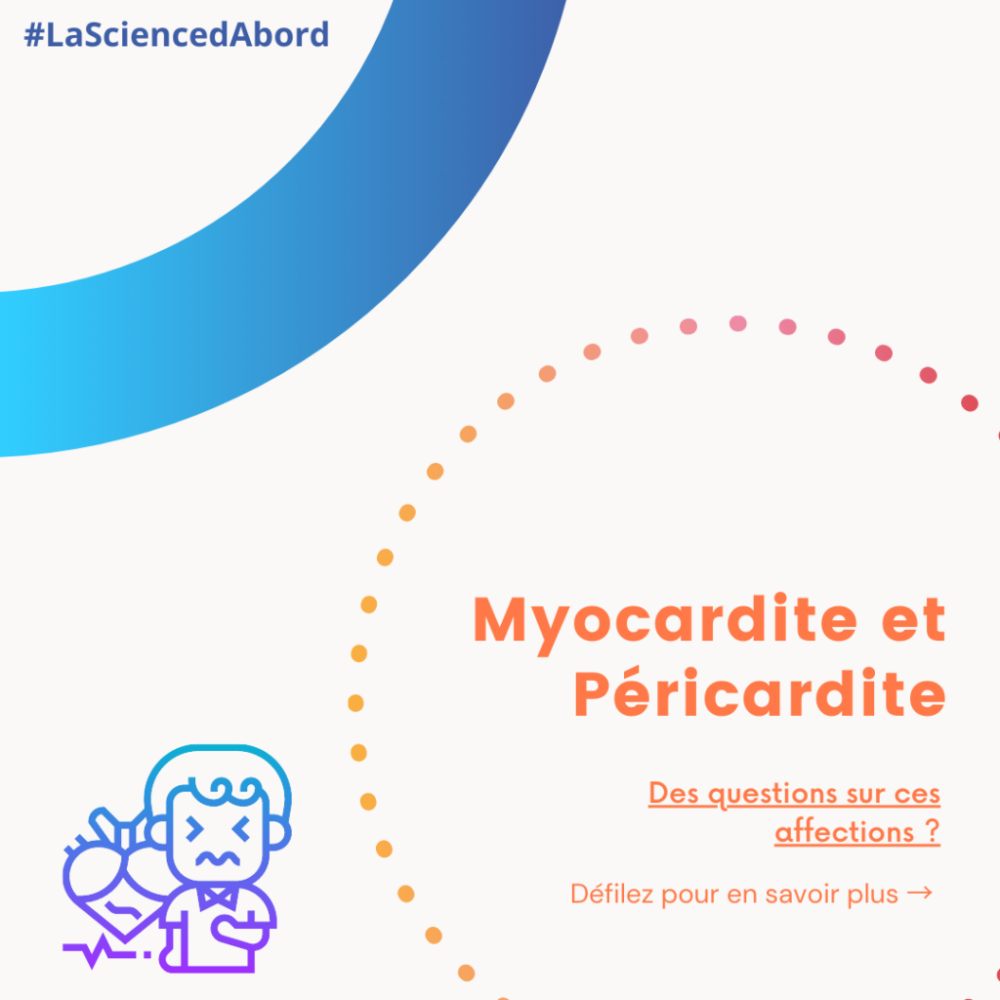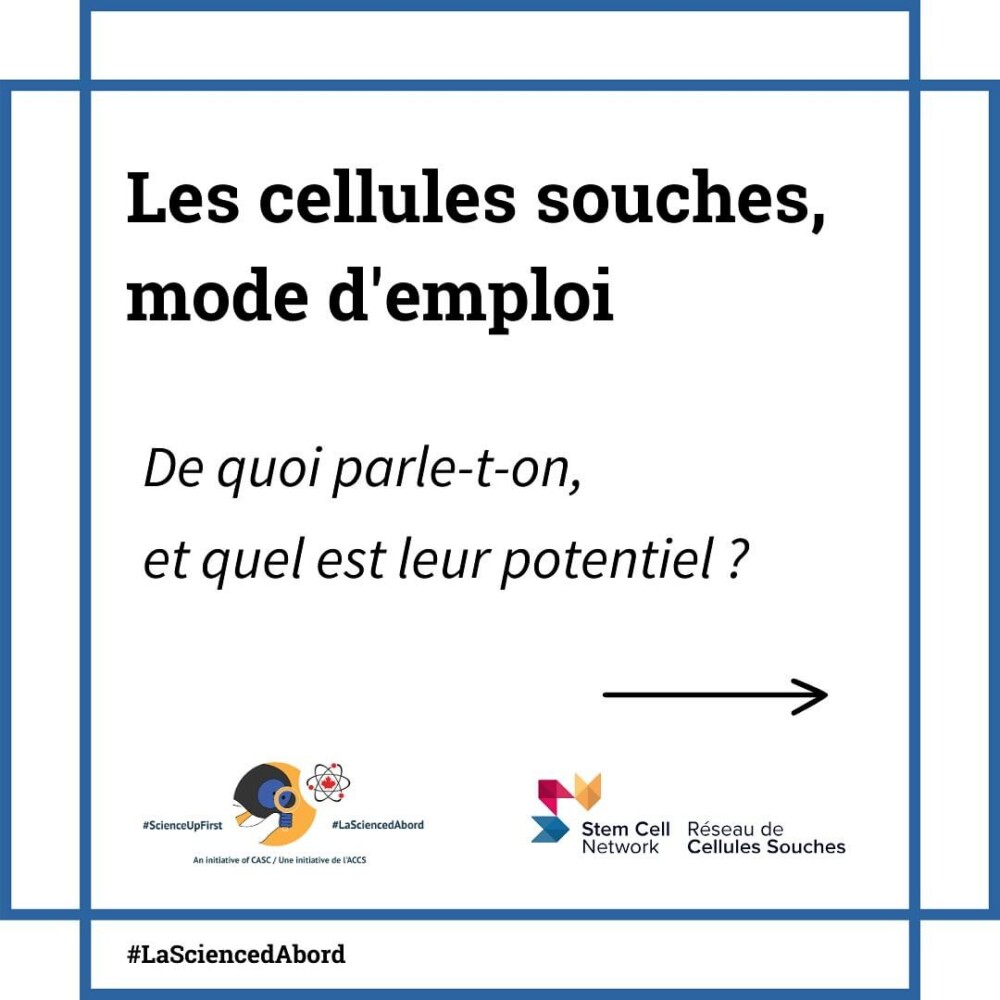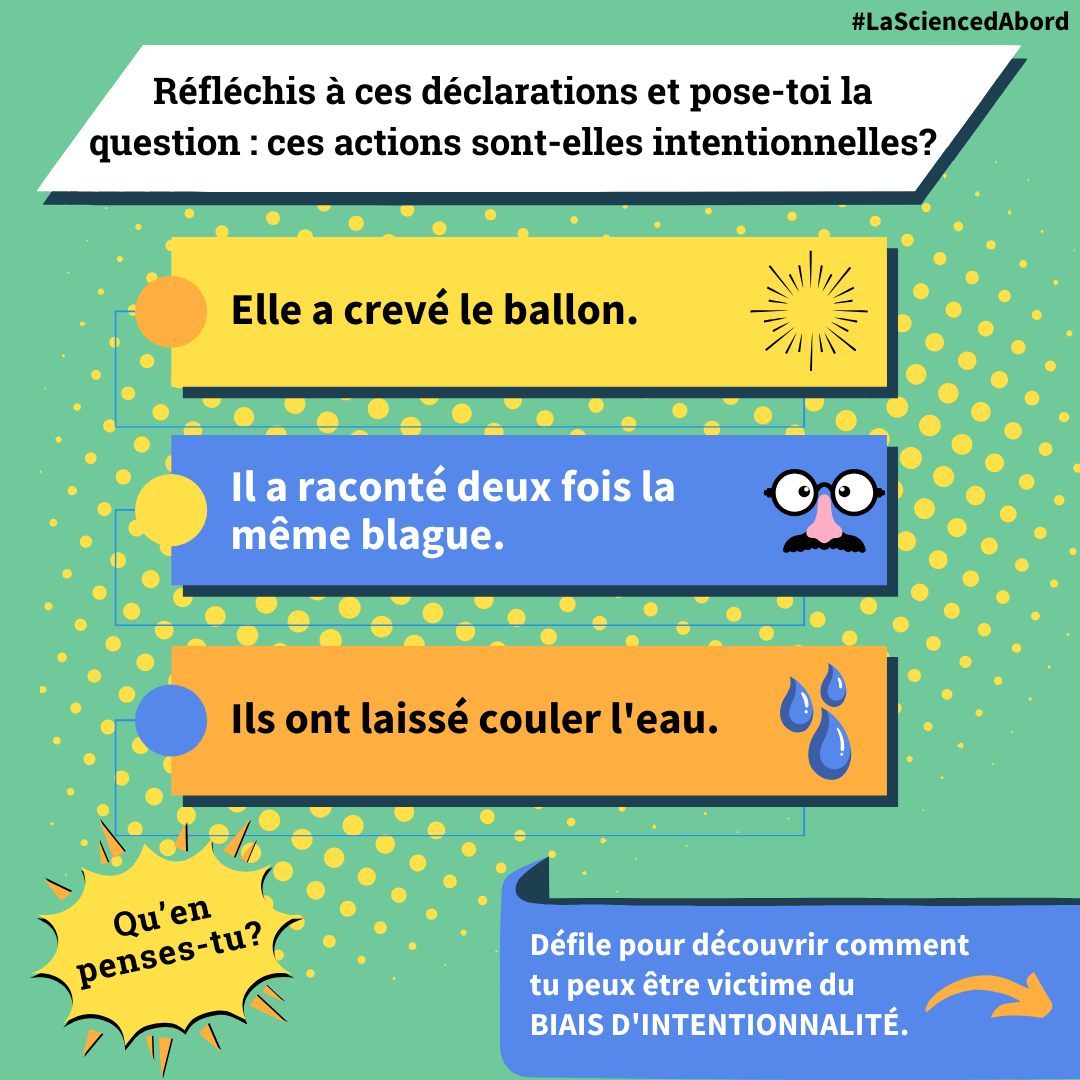
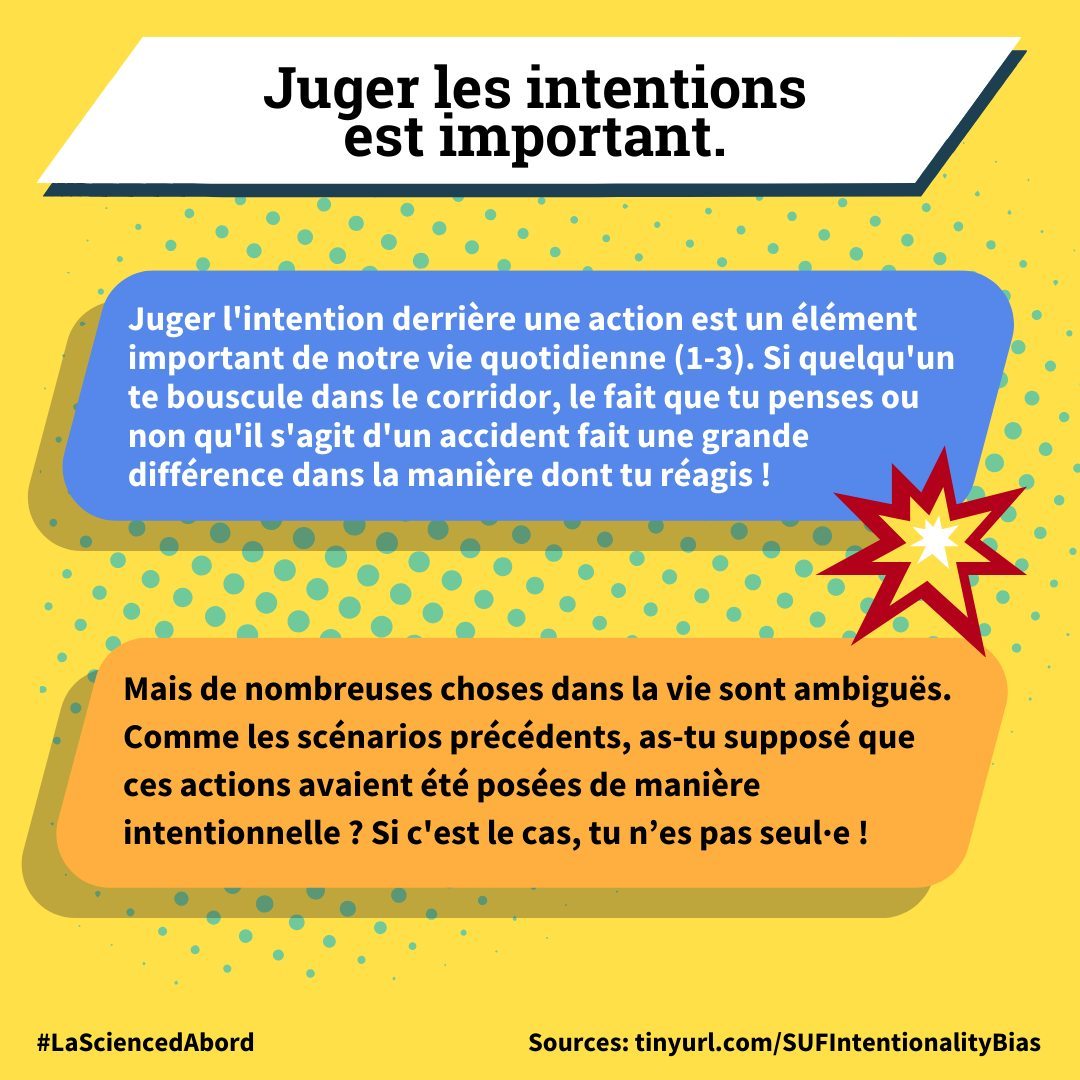
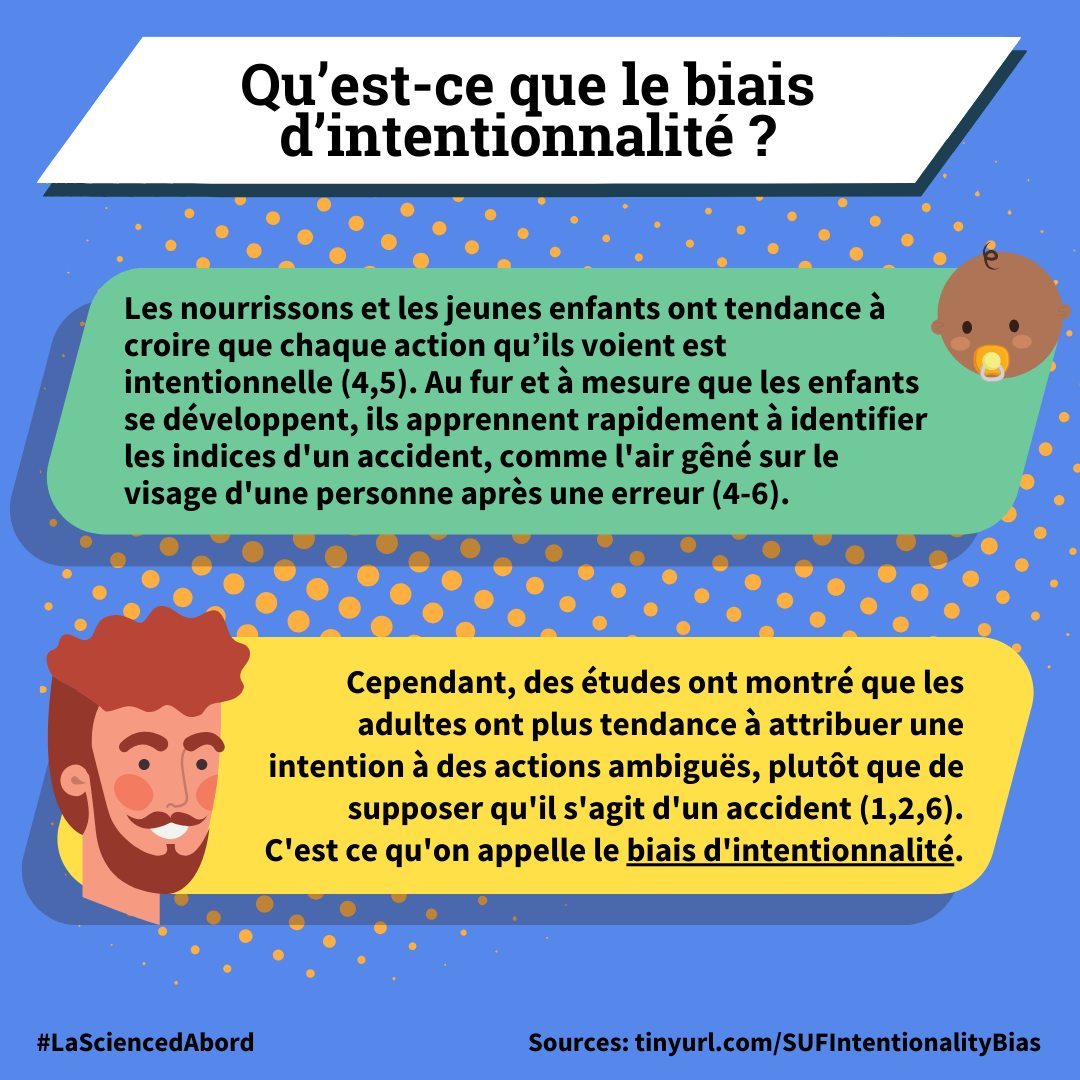
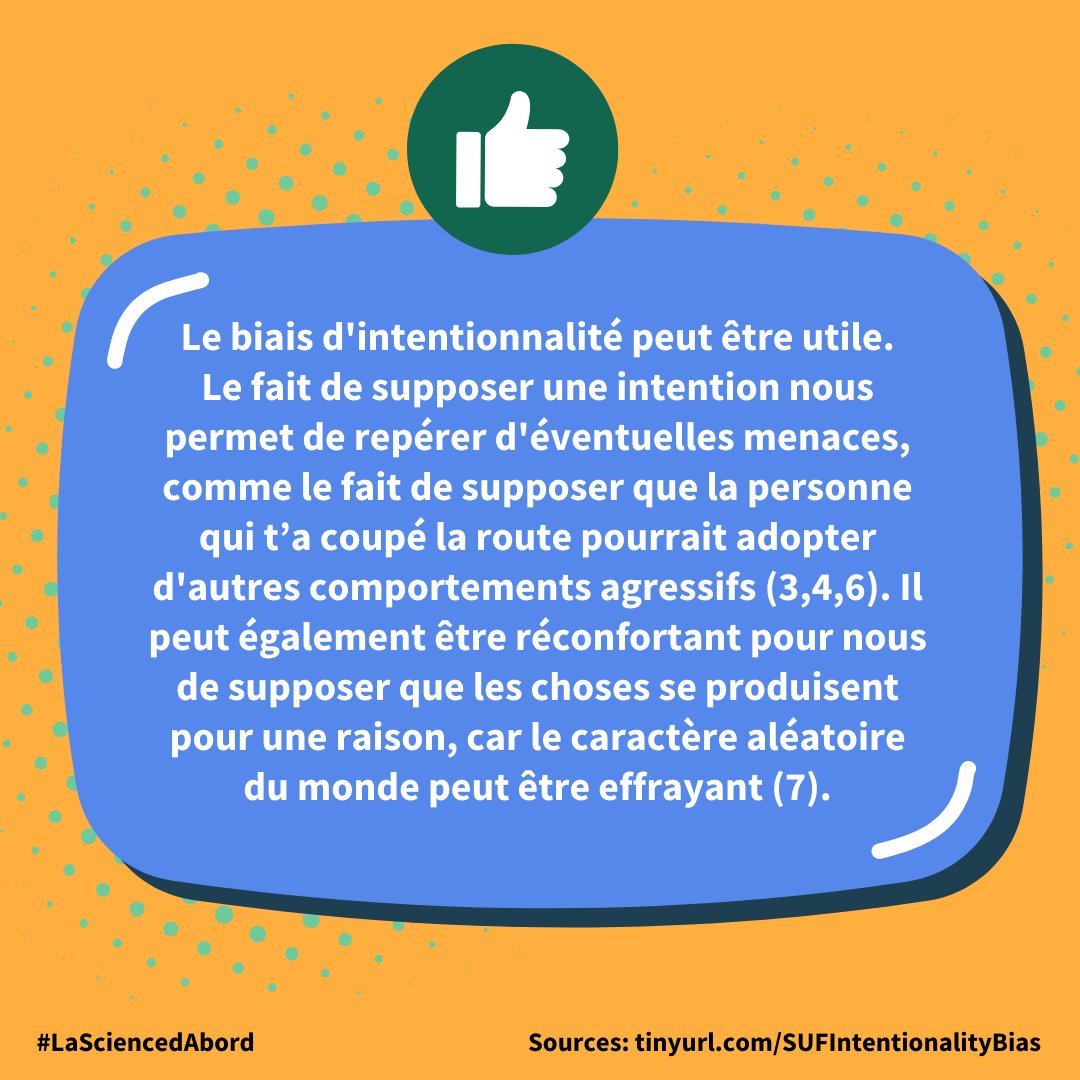
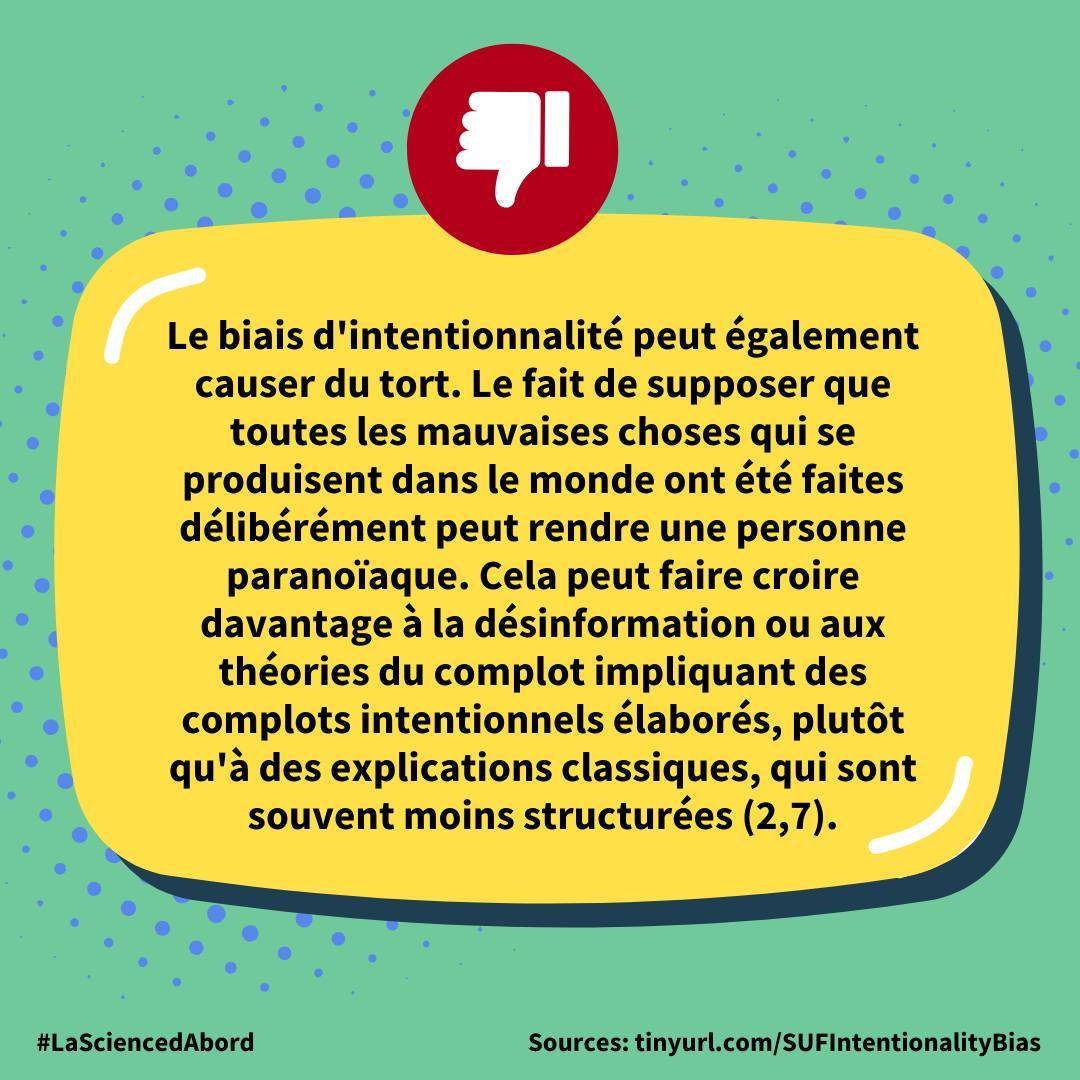
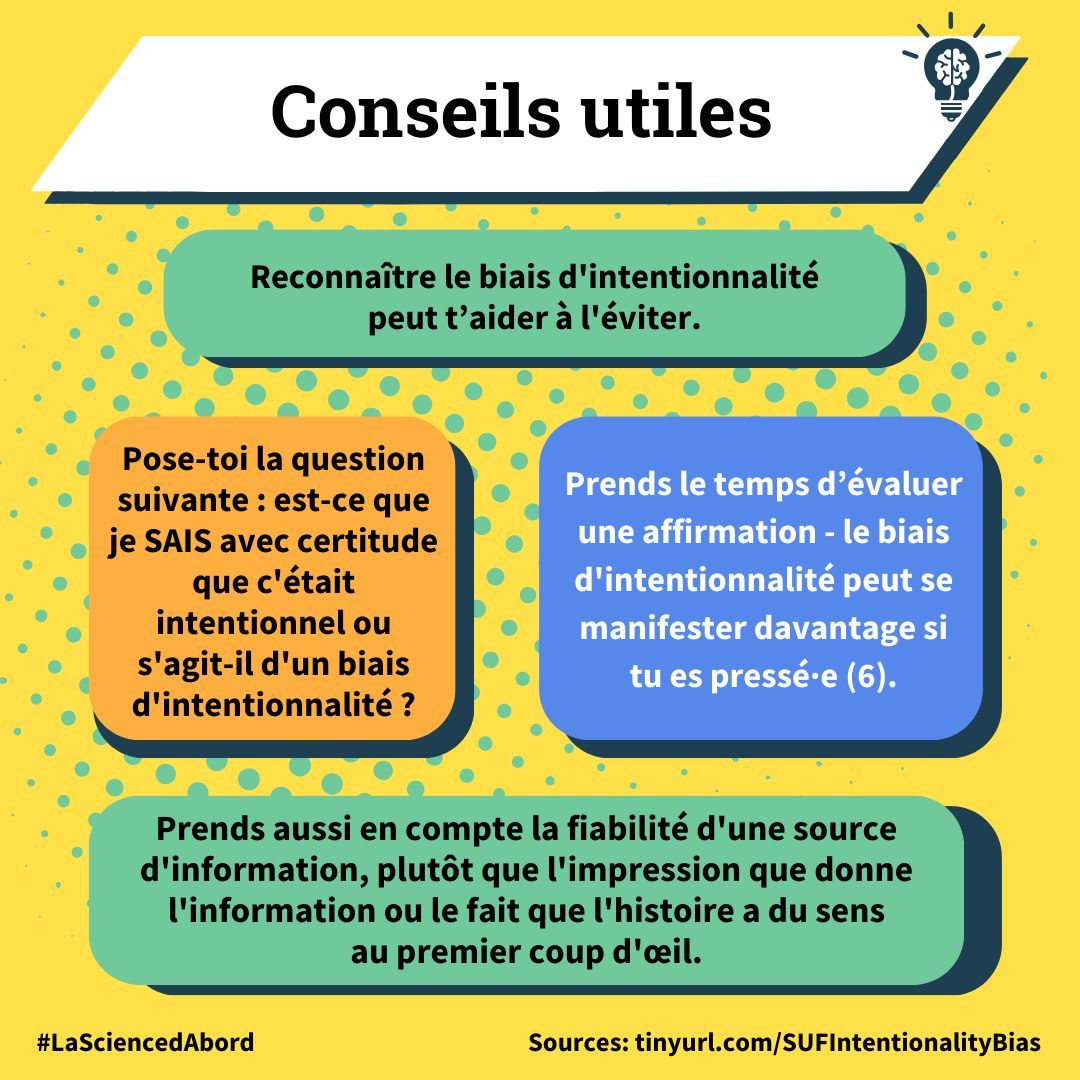
Alors, selon toi, est-ce que ces trois actions ont été faites exprès ?
Tu as peut-être été victime du biais d’intentionnalité. La prochaine fois que tu te retrouves dans une situation dans laquelle tu ne connais pas les intentions de l’autre, essaie de prendre conscience de ce biais. Prends le temps et demande-toi si tu es certain·e que l’action est intentionnelle ou non.
Prends en compte la fiabilité d’une source d’information, plutôt que l’impression que donne l’information ou le fait que l’histoire a du sens au premier coup d’œil.
- Individual differences in the intentionality bias and its association with cognitive empathy | Personality and Individual Differences | February 2018
- Intention Seekers: Conspiracist Ideation and Biased Attributions of Intentionality PLoS One | May 2015
- The Folk Concept of Intentionality | Journal of Experimental Social Psychology | March 1997
- Children’s understanding of intentional vs. non-intentional action | Journal of Experimental Social Psychology | 2007
- Young Children’s Understanding of Intention | Cognitive Development | September 1999
- It’s No Accident: Our Bias for Intentional Explanations | Cognition | September 2008
- Is it pathological to believe conspiracy theories? | Transcultural Psychiatry | August 2023
Partagez notre tweet original !
Alors, selon toi, est-ce que ces trois actions ont été faites exprès ?
— LaSciencedAbord (@LaScienceDAbord) November 25, 2024
Dis-le-nous dans les commentaires et profites-en pour en apprendre plus sur le biais d’intentionnalité 👉 https://t.co/lbpi0MTLQg#LaSciencedAbord pic.twitter.com/GpdpA6MX77
Voir notre post Instagram original !


